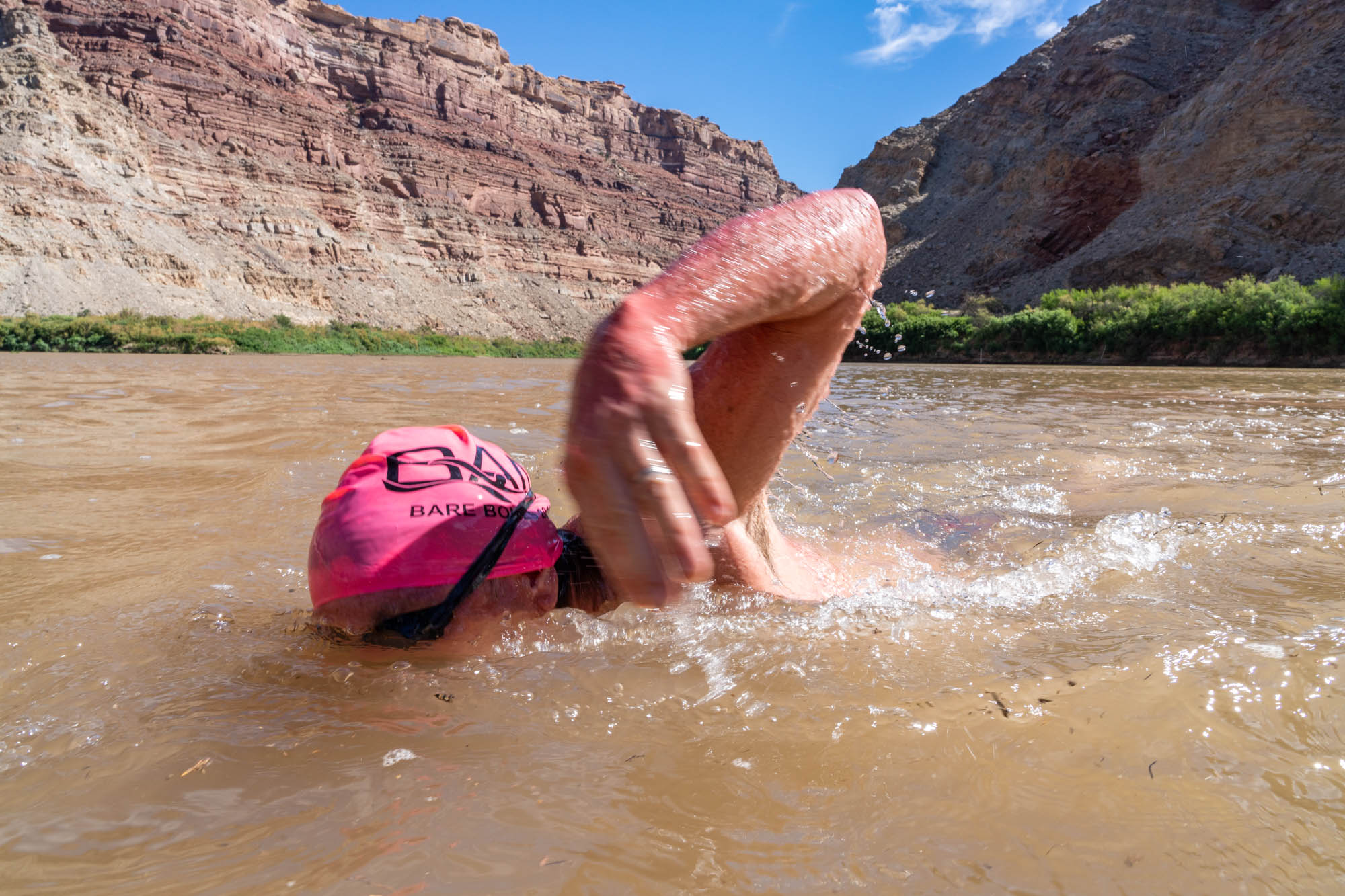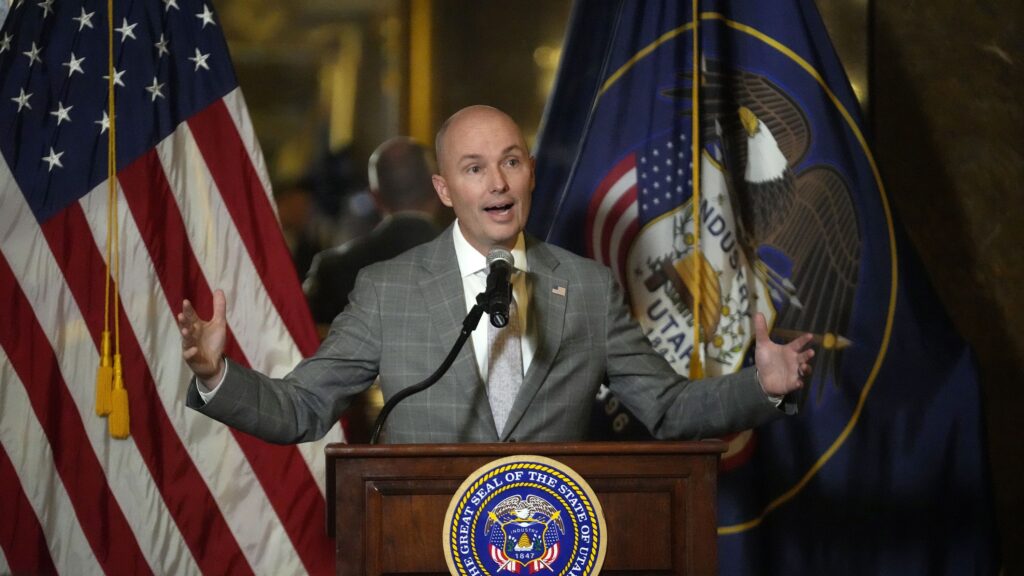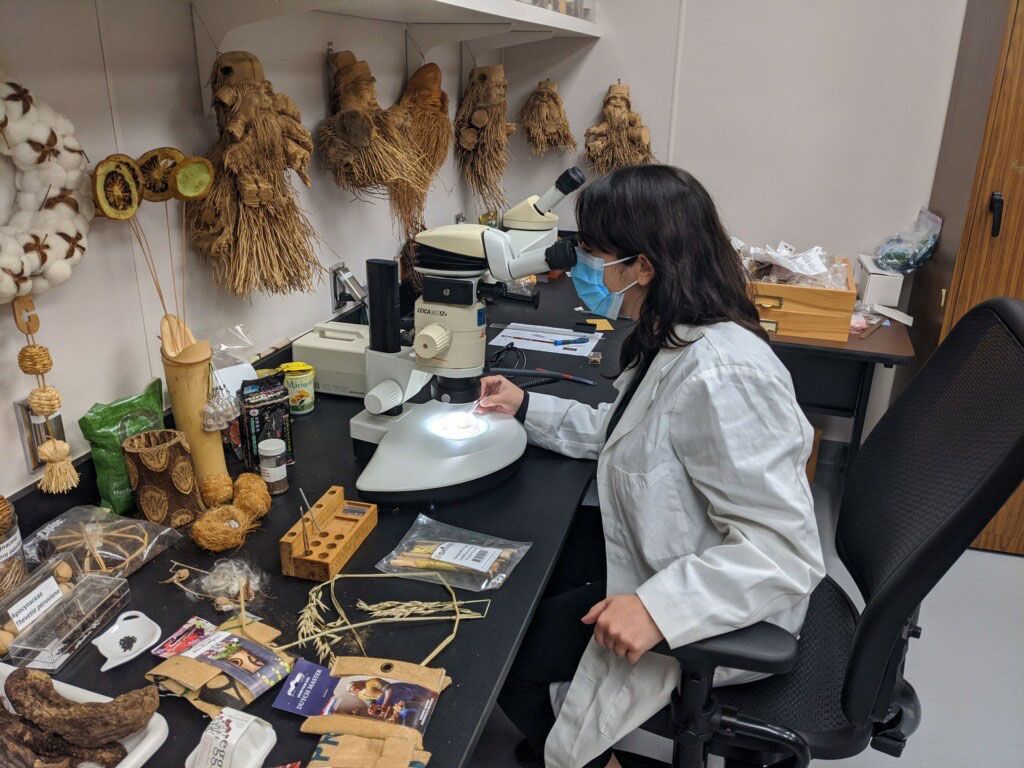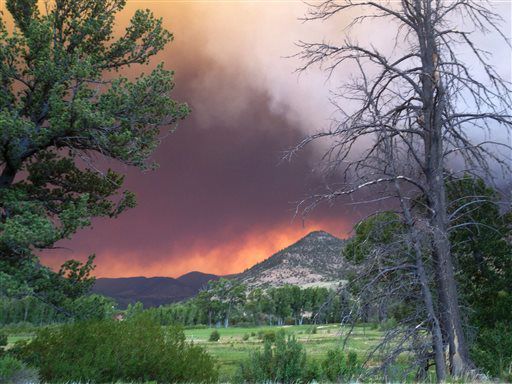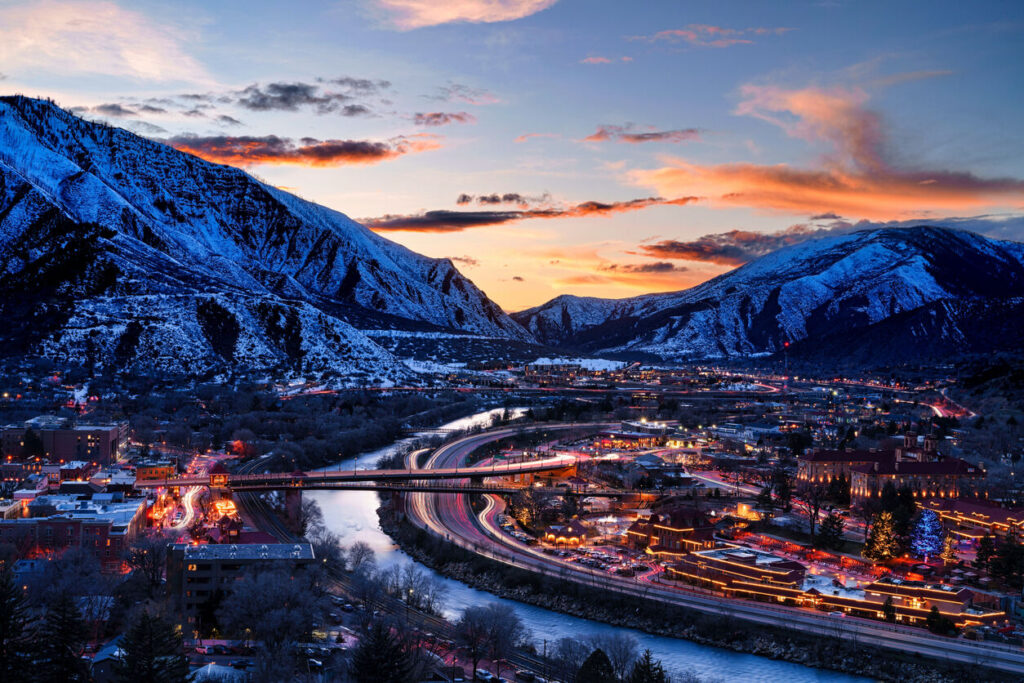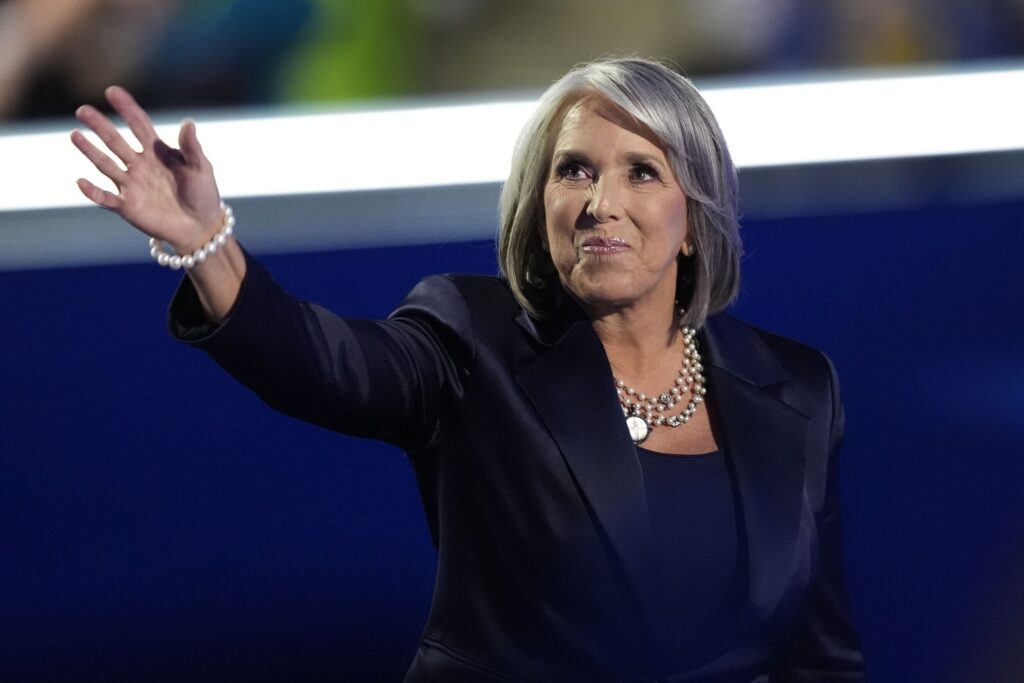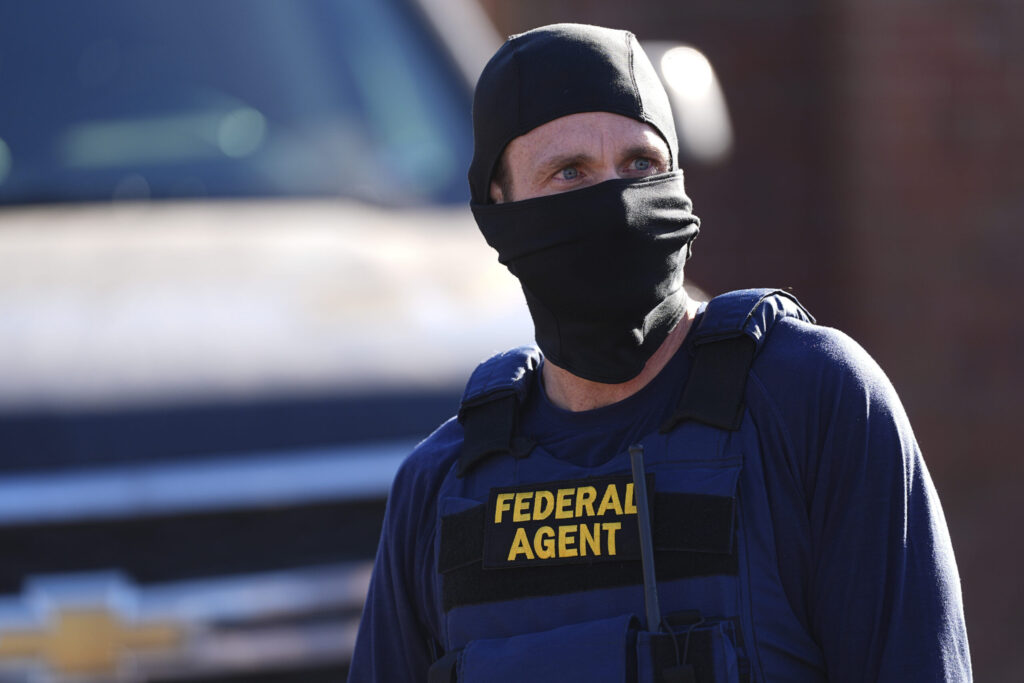Q&A with Matt Moseley: The view from beneath the waves
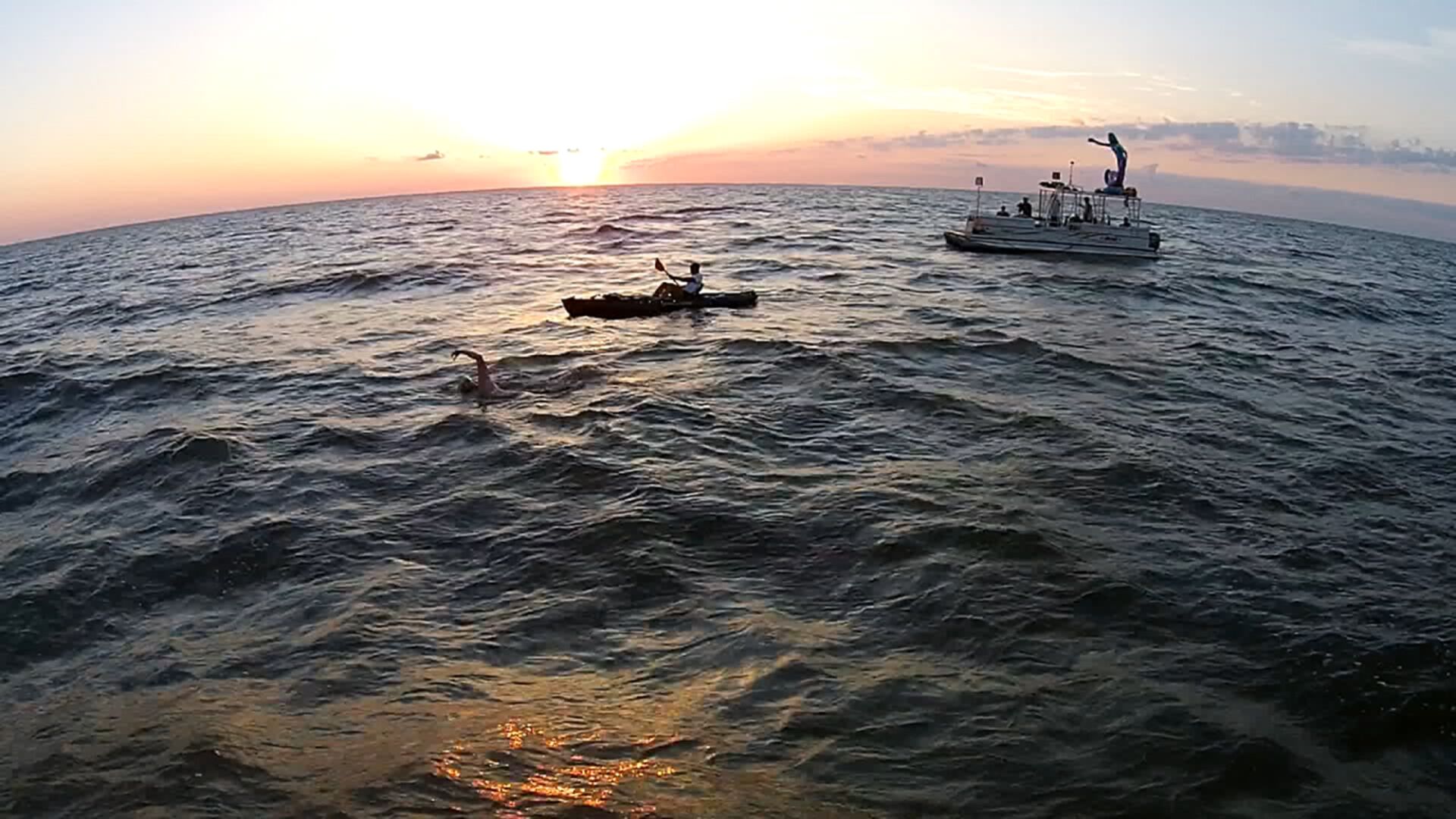
If you’ve been around long enough, you might remember Matt Moseley as the communications chief for the Senate Democrats under then-Senate President Joan Fitz-Gerald.
While he was walking the halls of the state Capitol during those days, he also undertook something he said puts him in the right frame of mind for dealing with politicians – adventure (long-distance) swimming.
Moseley, who has run a communications firm since leaving the Capitol in 2006, is one of the world’s best adventure swimmers, with numerous records to his name for swimming some of the world’s foremost bodies of water. They included Key West, across Lake Ponchartrain, the Colorado River, the Sea of Galilee, across the Caribbean, and the Golfo Dulce (gulf) of Costa Rica.
In the quarter century that has passed since he first took up adventure swimming, Moseley has had a front-row seat – or more precisely, a below-the-waves view – to the effects of climate change and drought on rivers, seas and aquatic habitats.
He’s written about those impacts in a new book, Soul is Waterproof, and spoke to Colorado Politics about what he’s observed.
Fast Facts: Native of Lafayette, LA. Attended Louisiana Tech University, earning a bachelor’s degree in economics. Holds a master’s degree in political science/public policy from the University of Colorado at Boulder. Matt is married to Kristin, a water attorney (naturally!). They have two children. He is co-chair of the Colorado River Basin Council for American Rivers, has authored three books, including “Dear Dr. Thompson: Felony Murder,” “Hunter Thompson” and the “Last Gonzo Campaign,” which chronicled the fight by Thompson to free Lisl Auman from a life sentence for felony murder. Moseley was hired by Johnny Depp to be the family spokesperson and communications director for Thompson’s funeral and ash-blast.
Moseley has also been the subject of two documentaries, Dancing In The Water, a film about Lake Pontchartrain and Moseley’s swim across it, which was nominated for the 2014 World Open Water Swimming Offering of the Year; and, Silent River, a 13-minute film about the Green River swim and how rivers are hurting due to drought, climate change, and overuse.
Colorado Politics: What got you into adventure swimming?
Moseley: When we moved from Telluride to Boulder, my wife got me this canoe. I’d been swimming my whole life up until then, but always in just a box of chlorinated water, in just a pool.
The canoe came with a trip down the Colorado River from Moab to the Confluence through Canyonlands. That was the first time I brought my swimsuit and goggles. We didn’t bring any ice or chairs or shade. It was the first time that I had been in the water as a free agent, as an open water swimmer without a coach or a clock, or lane lines. And it was so transformative. I just started swimming from there, doing open water stuff.
Then I graduated to a 10k race at the Horsetooth Reservoir, and that was nearly 25 years ago. I really needed an outlet to take care of myself.
I usually would swim very early in the morning before going to the Capitol, 5:30 in the morning, and then get to the Capitol by 7:30. It was just a way to be in charge of my day, the only time in my day that I had to myself. It was really important to my mental and physical health.
You don’t just start doing 25 mile swims overnight, and it takes a while to build up to these things. I’ve been swimming a long time, and then I started doing 10K races and then other longer races, such as the swim around Key West, which is 12.5 miles around the island. During that time, in the 2000s, we would do these things called boondoggles: Let’s go swim for 20 miles in Moab on the river, and then hop out and go to Telluride Bluegrass Festival. Let’s go swim eight miles in Lake Pontchartrain in New Orleans, raise some money for the Lake Pontchartrain Basin Foundation, which they were cleaning up after Hurricane Katrina. And then we’ll go to New Orleans Jazz Fest.
The biggest one that we did was this huge adventure, swimming the Colorado River, biking the Kokopelli Trail (from Loma, Colorado to Moab, Utah), running the Grand Canyon and then going to the Burning Man Festival. It was a way to compile an adventure with a really fun event on the back end.
The swims kept growing and growing in distance and meeting people. And then, about 12 years ago, we were in Canyonlands (Utah)and I jumped off a rock and had an unfortunate incident and shattered my tibia and fibia. Shattered my whole right leg. It was the most difficult time in my entire life. I couldn’t swim. I couldn’t ski. I couldn’t do anything. It took two years to recover from that. I had, uh, 17 screws and four plates holding my legs together.
Through that recovery process, which was so depressing, I was very concerned about getting addicted to painkillers. I was on them for two years.
Through that convalescence, I set this goal to swim Lake Ponchartrain and be what I thought was the first person to swim it – for 25 miles. That was how I planned my first big open water swim, really turning that injury into something where I ended up better than I was before.
CP: So, are these swims primarily done as fundraisers?
Moseley: Mostly. I always team up with an environmental organization, such as American Rivers or the Lake Pontchartrain Basin Foundation in New Orleans, or in the Caribbean.
It was the Scuba Dogs Society (in Puerto Rico) who was protecting and cleaning up coral reefs. We were doing testing for plastics down there. It’s really important to me to do that because, when I’m in the water, in my view under the water, is that it’s really uncomfortable and I’m ready to quit. I won’t because I know that there’s somebody else and there’s this organization that has put themselves on the line for me.
It’s my way as a communications person to tell a unique story through the swimming about a river or body of water. It’s a different perspective. It’s what I can do to raise awareness about water issues, that water is the most critical issue of our time. It is not oil or gas. It’s not gold. It’s water.
CP: When you’re in the water, how much of an opportunity do you get to sort of observe the condition of where you’re at? Given your passion for water, do you get to get a good view of what these bodies of water are like?
Moseley: I would say that I have a 100% situational awareness, 100% observant, as to what my surroundings, because I have to be.
When I first dive in and I first start, I’m thinking of everything. What about the keys to the shuttle vehicle and what’s happening to childcare and the paint job of my house? Oh, my God! I need my tires changed!
It’s like your life is flashing before your eyes.
I write that swimming can sometimes be like dying in that perspective, where it’s a real transformation, where you are in this sort of time warp. Everything in your life that has brought you to this place sort of comes through your mind in this rapid succession.
Then, after maybe three or four hours of that, you sort of settle and that’s the part I just love and feeling very at peace and Zen with the water. I don’t want to sound corny, but in this ancient way, in this very spiritual way.
You’re not on a boat, you’re not fishing, you’re not on a surfboard. You’re in it and you’re immersed in it, and it starts to open up and sort of tell you who it is in some way.
You become very familiar with it. I become very attuned to the feeling and the taste and the texture of the water. So, in the Boulder Reservoir, for instance, it’s kind of freshly melted snow water with a hint of dumpster juice, or poop in the Colorado River. It almost tastes and looks like a richly textured cappuccino with notes of uranium tailings and fish scales.
Water everywhere is so different because it holds the geology, the geography, the people, all what we put into the river. It holds all of that, and it becomes kind of beholden to it canyon or geography.
What really drives me is a sense of personal agency that these swims I’m putting together have never been done before in the world. I am putting together this very unique vision for a very singular purpose, protecting water.
CP: What are you seeing when you’re going down the Colorado River, for example, or the Green River (a swim from 2021)? That was the one that you had to stop because because of low water levels. You’re swimming in these rivers at a time when we are experiencing some of the worst drought that the Colorado River and its tributaries, the Green River being one of them, are experiencing. When you plan a marathon swim, do you actually do some test swimming first?
Moseley: Absolutely. I’ve gone out there before multiple times, and we’ve done short distances. We look at takeout points and starting points. It’s very planned.
We talk about climate change, we talk about global warming, but [Green River] was really the first time that it hit me in the face, like literally where I’m swimming and the river is now four inches deep, and I’m crawling across the mud, walking across sandbars and rocks but following world open water swimming protocols and guidelines.
The river was eight times lower than it should have been for that point of the year in early June, after runoff. At certain points, we’ve had to drag the boats across. I had to walk across. And, you know, it was just really not good for the swimming. The body temperature goes away, all haywire. And it’s hard to get back in the water because you get stiff. It’s really sad and it’s just hard to keep walking and crawling across these sandbars. I wonder what the fish are feeling, the habitat and what is it doing to them.
You don’t have the pooling that you get in high runoff season, so that it spawns mosquitoes and larvae and other habitat. That’s where the beavers live. There’s all these things that go along with that.
It’s not just the fish in the river, but everything around it. You become very attuned to that.
If I was truly a fish, I’d probably be dying right now, literally dying with the water levels. I imagine that was happening. I’m very attuned to what’s happening with things in the water. There’s not rapids in these sections, but there are currents and we’re moving down the river and there’s sticks that are underneath the water that you can’t really see. My biggest fear is impalement, running up onto a stick that you can’t see.
You wanna always stay in the thalweg (pronounced tall-weg), the deepest part of the river, the channel that is within the channel.
Thalwegs are also political: It’s the dividing line within the Mississippi River between Mississippi and Louisiana, the actual line of separation.
I’m always trying to stay in the thalweg, and, in life, too. It’s one of my lessons: Am I spun out in the eddy (a circular current of water) right now? Or am I in the deepest part that’s moving?
Part of the beauty and the joy is swimming with fish and wildlife. While it can be scary and painful. I’ve had severe jellyfish stings, and at the end of the Lake Pontchartrain swim, there was an alligator sunning itself at the boat ramp where I was going to get out.
There was all these news media there, and someone [said], “Somebody better call City Hall. We have a world record swimmer, we’ve got national media and an alligator.” So, the mayor came out and greeted me as I came out of the water. It was super funny.
CP: What lessons have you learned about climate and water from doing these open water marathon swims? How should people be responding to these things from your perspective of seeing the water in a way that few people have?
Moseley: Over the years, the lesson and it almost makes people laugh when I say it, but people can’t live where fish can’t swim overall.
It’s not like save water and put it in a reservoir or channel it into a diversion. It’s how do we protect the natural systems that we rely upon so much as a human society. It’s not just managing the river. It’s living with it as kind of like a mother.
That’s what I learned on the Green River – is that people can’t live where fish can’t swim. I felt like if I was a fish, I’d probably be dying right now. I don’t feel like people understand that, as much as I think that we are so connected to this ecology, we can’t separate ourselves from it and just turn on the faucet whenever we want and have tap water come out.
That was my whole purpose in writing “Soul is Waterproof,” to see if I could make meaning of, and help people to understand that connection to their water.
CP: What’s your next big swim?
Moseley: I am looking to go back to the Colorado River next summer, late July, starting at the Moab boat ramp to the confluence of the Green and the Colorado rivers for 65 miles, over three days.
CP: That looks like the longest swim you’ve ever had.
Moseley: It would be. It would also be our first multi-day adventure in Canyonlands.
I’ve got a big swim in Thailand over Christmas, and then I’ll go to Puerto Rico to do some open water training in the spring, probably, when (the legislature) does budget week.
This will be the tenth anniversary of the Lake Ponchartrain swim on June 12th. I want to go back. We’re going to scope it out on Dec. 10.
They want me to swim from the end of the Mississippi River to Mardi Gras Pass, which is the first land barrier that you get to from the Gulf as you approach New Orleans. It’s about a 10-mile swim, but there’s a lot of currents in the Mississippi River. I’ve never wanted to swim in the Mississippi. That sounds very dangerous to me, but this is the end where the currents aren’t so strong, but there is a lot more wildlife and alligators out there.
What I love to do, which really separates me from other endurance athletes, and especially endurance swimmers like people that swim the English channel, is I really try to make it fun.
It’s magical. There are some pretty beautiful moments in this life, and very sublime, and I like to chase them.

